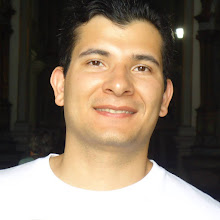Oswald Stuart Nascimento Rabelo*
The author states that somes theorist even do not consider “teaching” a science. Then, he defines job, vocations, work, career, occupation and profession as a way to categorized what teaching is, what kind of role the teacher has in society.
Then he introduces 3 theories about what is teaching and “teacher role” and technique used to teach. The first model consider the teacher as passive technician, someone who only transmit knowledge or who is just a bridge between the savant (philosophers who think) and the ignorant students. Then the second theory states that the teacher is as reflective practitioners, in other word, a person that somehow can use his own creativity and autonomy to teach, then who is more active in the teaching process. Moreover, practitioner teacher are problem solver and they used reflection-on-action as a way to evaluate his own teaching method before and after class and reflection-in-action to evaluate his own teaching practice during class.
The last approach considers teachers as transformative intellectuals with the role of transforming students by given then the means to have critical thinking, thus turning these apprentices active citizen in the world. The last approach do not restrain the act of teaching only in classroom, but also engaging the community and society as a whole.
The last point the author mentions is the difference between theory and practice. Im my opinion, it is purely a ideological fact because in real world theory is mixed with practice. Moreover he distinguishes professional theory and personal theory. The first one is a scientific based and the second one is common sense based. Both are valid way of thinking and has its own role on the teaching practice. The author shows that teacher must used professional and personal theory during work, once teaching is a mixed of science and art, thus requiring both professional skill (academic background) and personal and social skill.
I agree with the author that teaching is to improve the student learning process in the last available time possible. Moreover, I think modern science aim to be environmentally-friendly, human right respectful, understanding human been as a whole, hence taking in account believes, values, desired, diversity of each individual in the planet.
I think the author point out important viewpoint of teaching methodology theory, and I would add the reasoning that motivate the education system: is education to preparare the population to the workforce or to transform people in better citizen? I believe critical pedagogy is very optimistic about education, once it states that education should improve the society, but I do not think that we can give conscious to the people or teach then how to become better human been, once I think values are hard to change and transform a country since childhood will encounter severe barrier from the political elite of more traditional and archaic mindset country like Brazil.
KUMARAVADIVELU, B. Beyond Methods: Macrostrategies for Language Teaching. Chapter 1. (2003)
*English Language Licentiate student of Universidade Federal de Minas Gerais, response paper wrote to the course “Fundamentos metodológicos do ensino de inglês: aquisição em abordagens” given by Prof. Reis in Faculdade de Letras on 03/13/18.

Nenhum comentário:
Postar um comentário